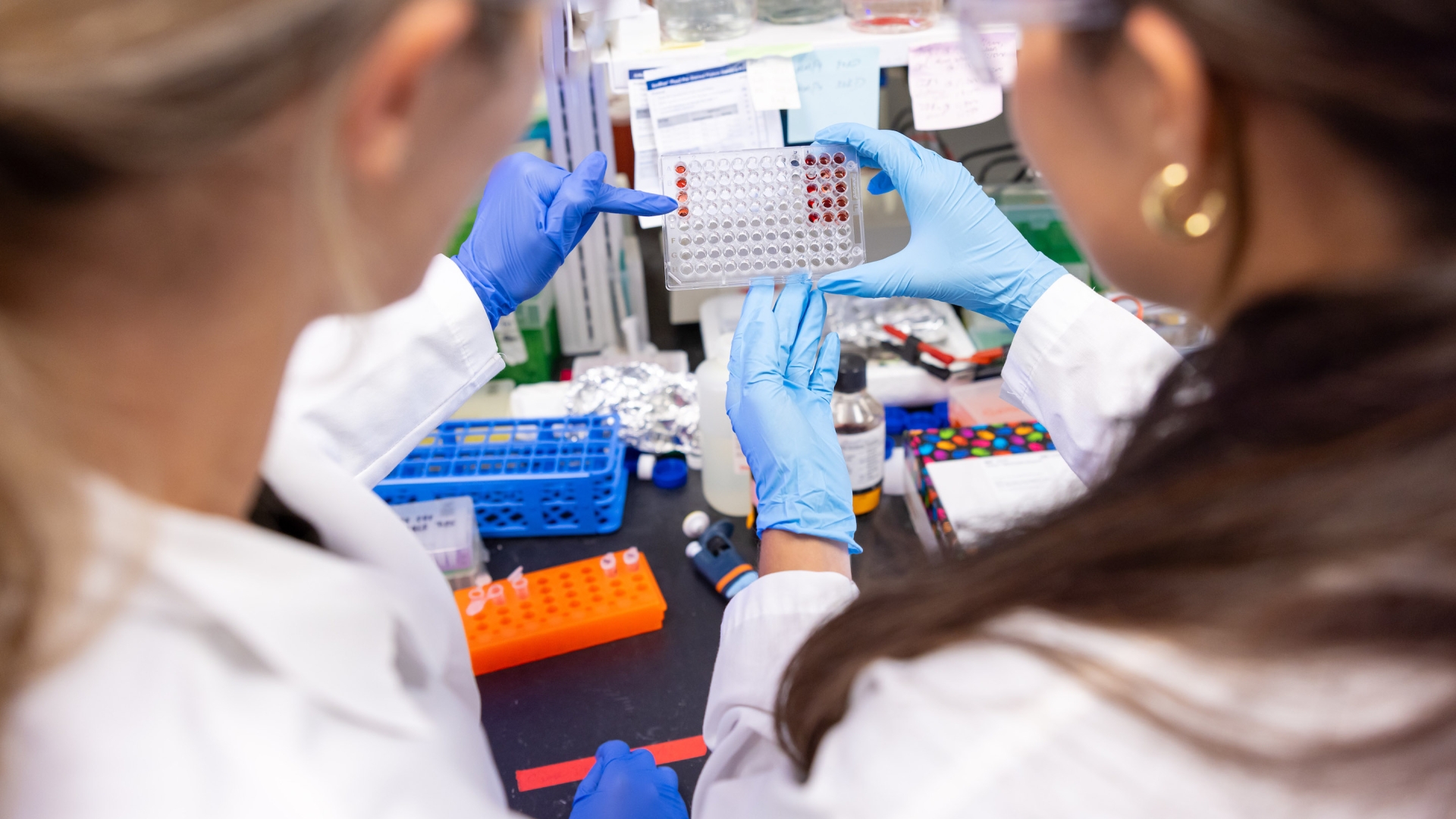The Newman Lab, led by Dr. Erika A. Newman, is shifting the paradigm of pediatric neuroblastoma treatment.

The Newman Lab, led by Dr. Erika A. Newman, focuses on developing novel approaches to treat children with neuroblastoma and other solid tumors. Our work spans basic science to clinical practice, from understanding developmental pathways of neuroblastoma and identifying differences among treatable and high-risk types to creating new preclinical models to screen promising therapeutic compounds.
Our goal is to render neuroblastoma cells, and other types of pediatric cancer cells, from repairing the damage caused by radiation and chemotherapy treatments. We have our sights set on — one day soon — changing the way these tumors are treated and curing this form of childhood cancer.
Neuroblastoma, a form of cancer that develops in immature nerve cells, or neuroblasts, is one of the most common pediatric cancers, affecting some 700 children annually. In about 50 percent of new neuroblastoma cases, cancer cells have metastasized to other parts of the body by the time it's properly diagnosed, which significantly reduces treatment efficacy.
Better understanding changes that take place in utero that make neuroblasts prone to developing neuroblastoma can lead to new targeted therapies. Our work has found high-risk neuroblastoma cells exhibit heightened abilities to repair DNA damage, and we have identified particular DNA repair pathways that confer this survival edge in the stem cells from which neuroblastoma originates.
We've also developed a successful technique for creating patient-derived preclinical models to investigate new therapies. Now that we are homing in on the particular pathways and repair proteins involved, we're using the models to actively investigate novel compounds to inhibit them.
Our lab was the first to show that aggressive neuroblastoma cells exhibit greater upregulation of certain DNA repair proteins, guiding us to further investigate the role of DNA repair processes in tumor cell survival and clarifying the role of particular pathways and components. Ongoing work is exploring these processes as potential therapeutic targets.
Our findings have uncovered previously unrecognized targets for therapy in addition to stratifying individuals most likely to respond. Moreover, we can better protect patients against the toxic effects of chemotherapy.